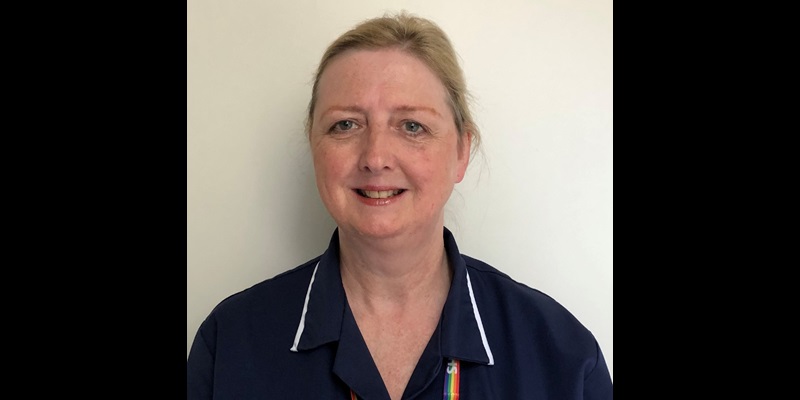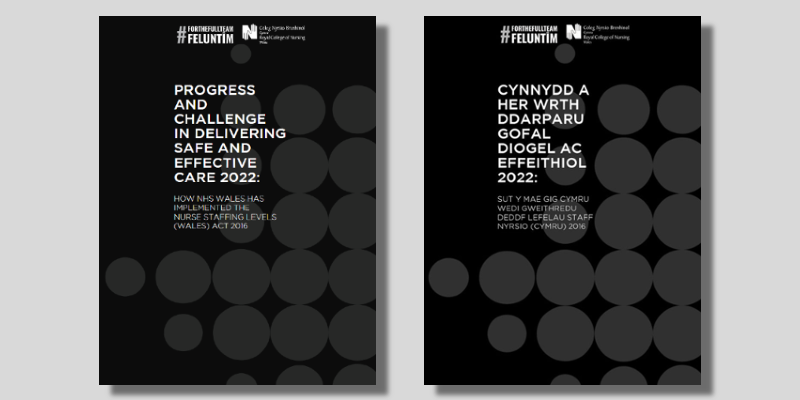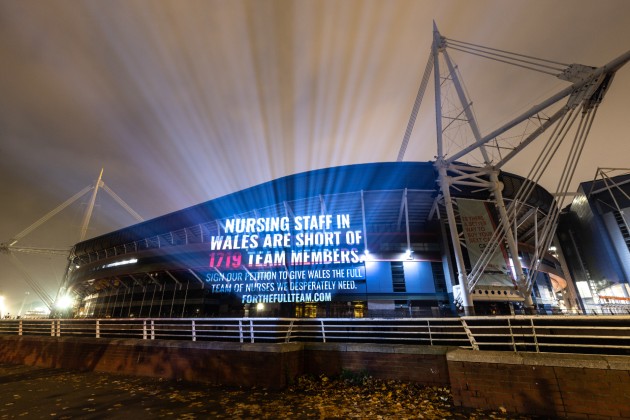Once seen as a rewarding place to work, nursing in the community is under pressure like never before. “This team, and many others like it, is extremely short-staffed,” says district nursing team manager Alison Magor, who works for Aneurin Bevan University Health Board. “We advertise time and time again, but rarely get any applicants.”

Under the existing safe nurse staffing legislation the RCN campaigned for, in Wales, health boards have a legal obligation to provide sufficient nursing staff to provide sensitive patient care.
In acute medical and surgical wards, and in children’s wards, the law goes even further and specifies that the level of “sufficient nursing staff” must be precisely calculated to reflect patient need.
However, the legal obligation to calculate and maintain nurse staffing levels doesn’t apply in community settings, which adds to the difficulties faced by community nursing staff.
“Over the last year particularly, we’ve taken on a lot from hospitals that we didn’t do before, which means we’re looking after patients with many more nursing needs and going from call to call,” says Alison. “The price of petrol isn’t helping either. At the moment, the national agreement isn’t covering the cost of what we’re using.”
Patients must stay at the heart of all we do
Currently Alison is four members of staff down, without taking into account anyone who may be off due to sickness or leave.
“But it’s nothing new,” she says. “It’s been going on across Wales for many years. It’s a continual priority for us. We rely a lot on the goodwill of our team, who often come in early and work late. We can’t keep expecting all of our staff to keep doing extra shifts, staying late, waiting for annual leave or returning early because eventually they will get tired and burnt out. We firefight on a daily basis.”
Staff worry whether their documentation is correct and whether they are referring patients who need extra help to different agencies. “This is just as important, but it’s time-consuming,” says Alison. “Our patients need to feel they’re receiving holistic care, tailored to them. Patients must stay at the heart of all we do.”
Extending Section 25B of the safe staffing legislation to district nursing, taking into account the complexity of patients’ needs and their acuity, would improve her team’s working lives dramatically, Alison believes.
“Our staff would then have an accurate amount of time per visit,” she says. “They would also have specific time for online training and updating their skills. Their work-life balance would be improved and they could go home at the end of the day not feeling guilty that they can’t stay on. Until that happens, we’ll be struggling, as nurses won’t want to come into district nursing – which is such a shame as we offer so much.”

Now RCN Wales is calling for section 25B of the legislation to be extended to cover all areas where nursing takes place, beginning with the community and mental health inpatients, launching its For the Full Team campaign last November.
Safe staffing is a crucial issue for members, patients and their families, says Helen Whyley, Director of RCN Wales.
Alongside helping to retain current nursing staff, having the right numbers also helps reassure patients and their loved ones, she says. “But those who are working within the community and mental health are telling us there’s just not enough staff,” says Helen.
To enable real improvements, being able to apply a tried and tested methodology to the numbers of staff needed is key. “Nursing establishments can be quite historical,” she says.
Unless we shout from the rooftops that we don’t have enough nurses, quality of care will be reduced
“That means that the acuity of patients and an appropriate skill mix may not have been examined for a while.
"But it’s been well researched that if you use a methodology that also includes professional judgment, you will have sufficient nurses to be able to deliver high-quality care to patients. And we know that a consistent team ensures safer and more effective patient care.”
Legislation is needed now to protect patients, says Alison. “I adore being a district nurse and I wouldn’t be anything else,” she says. “But without enough appropriately qualified staff, we can’t achieve everything we want. Unless we shout from the rooftops that we don’t have enough nurses, quality of care will be reduced.”
How can you get involved?
Wherever you’re working, RCN members can play their part in making safe staffing a reality. “We’re trying to make safe staffing everybody’s business, in every way we can,” says Helen.
- Consider becoming an e-campaigner and receive regular newsletters about how you can help. Currently there are around 1,200 members who play a significant role in making safe staffing a reality on the ground. Sign up here.
- Download a copy of the RCN Nursing Workforce Standards and talk about them in your workplace. “Think about how they can help you provide better patient care,” suggests Helen. Get more information and case studies.
Timeline towards safer staffing in Wales
- May 2006 – RCN Congress passes a resolution demanding UK-wide legislation to ensure appropriate staffing levels.
- September 2007 – The RCN’s Get it Right campaign launches which, over three years, consolidates workforce planning in the minds of Assembly Members (AMs).
- 2011 – The Time to Care campaign launches, which includes a clear demand for a statutory duty for safe care.
- 2013 – Kirsty Williams AM is successful in a ballot to introduce a private members' bill on safe staffing.
- 2014 – The bill is formally presented to the National Assembly to start its legislative journey.
- 21 March 2016 – The Nurse Staffing Levels (Wales) Act 2016 makes history, as it becomes the first law of its kind in Europe. The act requires health boards and NHS trusts in Wales to take all reasonable steps to maintain a specified nurse staffing level.
- 2017 – The Welsh government publishes statutory guidance to accompany sections 25B and 25C of the act.
- 1 April 2018 – The act is fully implemented in acute adult, medical and surgical wards.
- 1 October 2021 – The law is extended to cover children’s wards, following RCN lobbying.
- 16 November 2021 – RCN Wales launches its For the Full Team campaign, illuminating the Senedd and other iconic buildings in Cardiff with the message: “Nursing staff in Wales are short of 1,719 team members. It’s time to give Wales the full team of nurses we desperately need.”
More information
Our fight for safe staffing levels is at different points across the UK. Find out more about safe staffing here.








